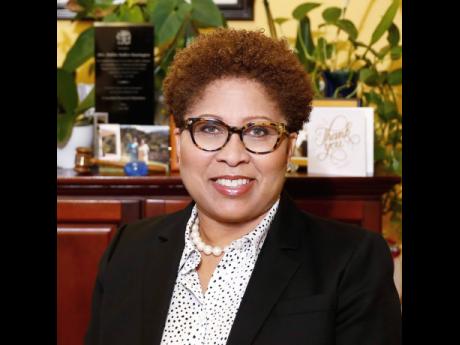Immigration Corner | How long can I stay outside the US?
Dear Mrs Walker Huntington,
I’m a recent resident immigrant who arrived in the United States (US) in October 2019. After two months, in December 2019, I returned to Jamaica to sort out some unfinished business.
Because of COVID-19, and being among the high-risk group (age and hypertension), I’m still outside of the US to date.
Will I be penalised if I consider returning between January and February 2021, my considered safe time? Or what is the best recommended time for me to return?
Thanks in advance for your advice. Take care and be safe.
– F.C.
Dear F.C.,
Undoubtedly, there are green card holders who were caught outside the US when the world went on lockdown the third week of March. A green card holder is required to live in the United States – at least spend the majority of their time there. With the pandemic, it made fulfilling this requirement difficult for many all over the world who could not return to the United States.
However, the borders are opening now, e.g., in Jamaica; and where they are, persons should make all efforts to return to the US as quickly as possible. Some green card holders believe that if they travel to the United States every six months, that will maintain their residency requirement in the US. However, if you travel every few months but only spend a few days or a couple weeks in the United States, that alone will not protect your US residency.
Certainly, any green card holder/permanent resident who is outside of the US for a year or more is considered to have abandoned their residency. They are required to apply to return as a returning resident and must make this application with their local US Embassy or consulate – depending on their country location. When applying as a returning resident, the applicant must show that they were domiciled in America and made a trip that lasted longer than they had planned. If the US Embassy does not approve the returning resident status, the residency is terminated.
There are also instances where a green card holder arrives at a US border and the Customs and Border Protection officer (CBP) realises that they have not been residing in America. The CBP officer has several options, one of which is to invite the immigrant to surrender their green card or be placed in removal proceedings before an immigration judge.
In your situation, you should consider making all necessary arrangements to promptly return to America. Staying more than a year will indicate the abandonment of your US residency. COVID-19 is not a reason to extend your absence from America, once the border is open, because the coronavirus is worldwide. The virus is definitely not as prevalent in Jamaica as it is in America, so you must weigh your options and make the decision that is in your best interest.
If you are not able to live in America because of unfinished business in Jamaica, you have the option of applying for a re-entry permit. If that permit is approved, you may be allowed to stay outside of the US for up to two years without jeopardising your US residency. However, you must be present in America when you make the application for the re-entry permit.
Dahlia A. Walker-Huntington, Esq, is a Jamaican-American attorney who practises immigration law in the United States; and family, criminal and international law in Florida. She is a mediator and former special magistrate and hearing officer in Broward County, Florida. info@walkerhuntington.com

